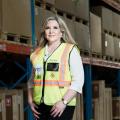As part of its Customs Modernisation Programme, the South African Revenue Service (Sars) has over recent years implemented several new and key initiatives to facilitate trade and to fulfil its mandate with the World Customs Organization.
These include RCG (Reporting of Conveyances and Goods), RLA (Registration, Licensing and Accreditation), the Traveller Declaration System, APN (Advance Payment Notifications), the Automation of Refunds and Drawbacks, and the phased rollout of a National Single Window (NSW).
As part of the NSW initiative, Sars and the Border Management Authority are in the process of digitising the Prohibited and Restricted Goods Index which is significant to trade as Sars prohibits or restricts goods on behalf of Other Government Agencies (OGAs) in terms of Section 113(80)(a) of the Customs and Excise Act.
An unfortunate consequence of the progress made by Sars is that all OGAs have been left behind in digitising processes and systems.
Port Health, the State Vet, the National Regulator for Compulsory Specifications (NRCS) and the National Consumer Commission (NCC), to name a few, rely almost entirely on manual applications and processes.
The NRCS takes 90 days to process an application for a Letter Of Authority and the NCC may take as long as three months to finalise a case after goods have been detained.
This currently causes delays, additional costs and frustration for traders.
The Department of Agriculture, Land Reform and Rural Development is currently testing the NSW along with customs, but for a National Single Window to be effective, every government department in the logistics supply chain must be linked electronically.
An OGA not linked to the NSW would have to be considered a non-tariff trade barrier and this would conflict with the revenue collector’s vision of trade facilitation.
Delays and costs must be kept to a minimum if South Africa is to achieve the complete free flow of goods throughout the supply chain.
Budget constraints, lack of qualified staff, an unwillingness to move forward, and not fully understanding the impact on the supply chain all contribute to OGAs falling further and further behind when speaking about modernisation.
This is a challenge which can be overcome with the participation and collaboration of the private sector, with the single goal of improving the economy.
But government must be a willing partner.
- Clifford Evans, a customs liaison manager at Berry & Donaldson, reports for Freight News in an independent professional capacity.








